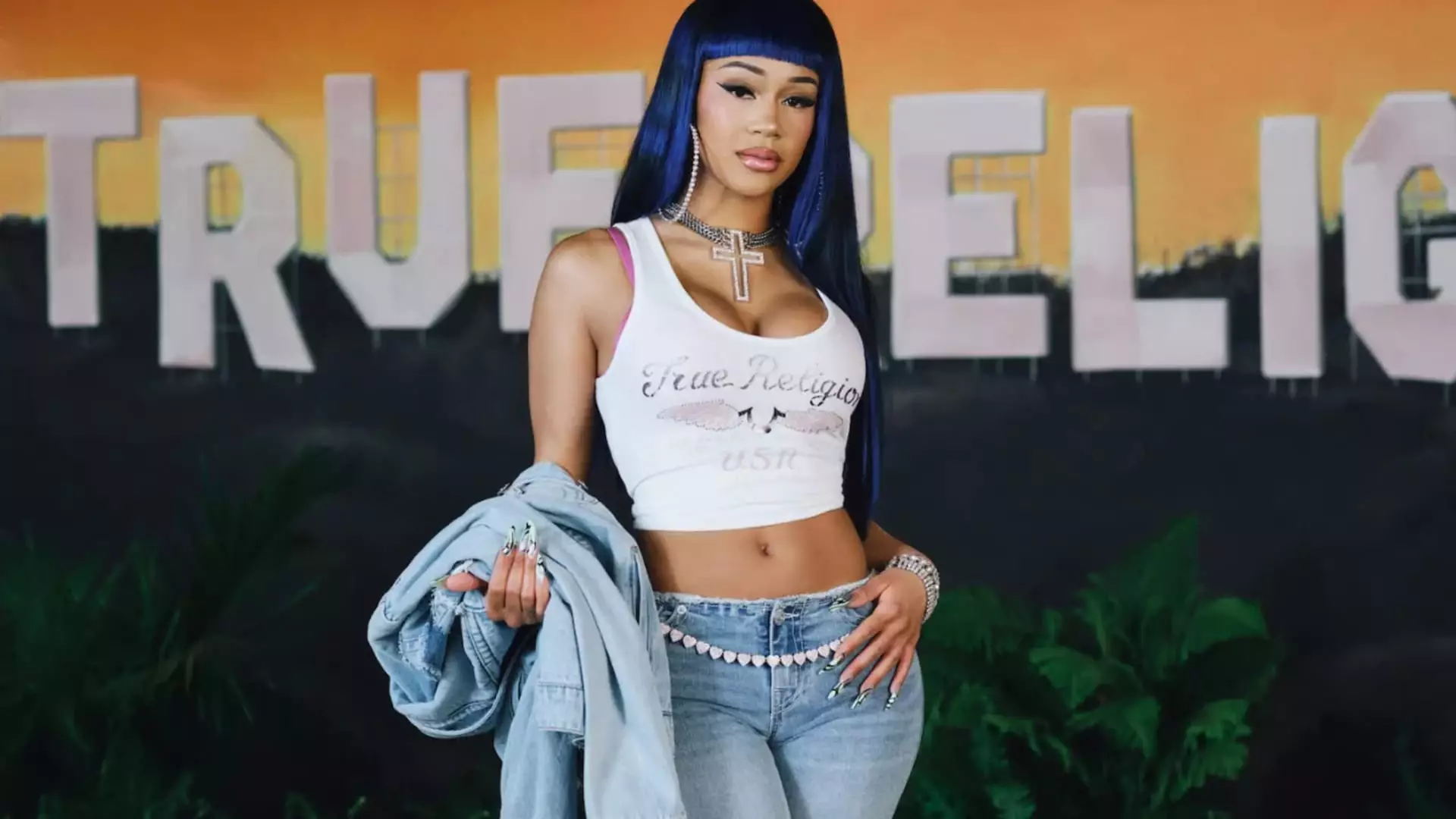In recent times, the denim market has seen a significant transformation, and perhaps few narratives highlight this change better than that of True Religion. Originally established in 2002, this iconic jeans brand once basked in the glow of celebrity endorsement and luxury appeal, securing a spot in the wardrobes of A-list celebrities like Jessica Simpson and Britney Spears. However, following a series of financial missteps, including two bankruptcies—notably one in 2017 and another amid the pandemic in 2020—the brand faced an uncertain future. Nevertheless, a glimmer of hope emerged as True Religion, under the leadership of CEO Michael Buckley, began its climb back to relevance, accompanied by new ownership from private equity firm Acon Investments and SB360 Capital Partners, a retail-focused investment fund linked to American Eagle’s powerful network.
The purchase of True Religion highlights a broader trend where traditional retail brands are seeking out strategic partnerships to navigate a challenging market. The involvement of Acon Investments, which boasts a diverse portfolio that includes brands like Applebee’s and Spirit Halloween, underlines the injection of vital capital and expertise required for True Religion to bolster its market positioning. Though the financial specifics of the acquisition were not disclosed, previous estimates suggested that the brand could sell at a mid-single-digit multiple of its earnings before interest, taxes, depreciation, and amortization (EBITDA). In 2023, True Religion reported sales of $280 million with an impressive EBITDA of $80 million, reflecting a robust growth trajectory of 20% year-over-year. This success serves as a promising foundation to build upon.
Central to True Religion’s revival has been its innovative marketing strategies spearheaded by Chief Marketing Officer Kristen D’Arcy. Instead of sticking to traditional advertising routes, the brand has embraced collaborations with influencers who resonate with a younger audience. The partnership with hip-hop artist Megan Thee Stallion, for instance, not only reinvigorated the brand’s image but also cemented its association with Y2K fashion—a trend that has re-emerged among younger consumers. Such strategic collaborations illustrate an understanding of contemporary consumer preferences, especially as the resurgence of Y2K aesthetics draws attention back to denim styles reminiscent of early 2000s fashion.
Moreover, the increasing popularity of jeans as a staple in the modern wardrobe plays to True Religion’s benefit. By aligning the brand with the current zeitgeist, True Religion effectively captures a consumer base that is eager for nostalgia blended with modernity. The choice of social media platforms like Instagram for outreach opens doors to a visually driven audience, enhancing brand engagement and leveraging influencer power.
Despite its recent successes, True Religion does not operate without challenges. A core hurdle remains reconciling the brand’s past luxury positioning with modern consumer expectations, which lean heavily toward sustainability and accessibility. Buckley acknowledged this shift, announcing a strategic pivot to target a more diverse consumer group with an average income between $60,000 and $65,000. The average price of jeans has also seen a decline, now averaging under $100 a pair—significantly more affordable compared to its historical pricing strategies that often flirted with the $300 mark.
To fully realize its potential as a billion-dollar brand, True Religion must not only broaden its product assortment but also refine its direct-to-consumer sales approach. This strategy contrasts starkly with traditional wholesale methods, which can dilute a brand’s identity and consumer connection. By focusing on e-commerce initiatives, True Religion stands to cultivate a more engaged and loyal customer base.
The acquisition by Acon and SB360 signifies more than just a financial restoration; it paves the way for transformative growth and innovation within the brand. With a solid leadership team in place and strategic partnerships that enhance operational capabilities, True Religion is poised to elevate its presence in the market.
In a world where fashion trends can pivot rapidly, True Religion’s embrace of cultural shifts alongside robust marketing efforts will be pivotal in maintaining its momentum. As the Y2K revival continues to captivate young shoppers, True Religion’s commitment to evolve—and redefine itself—will ultimately determine whether it can transform from a brand marked by past luxury to one firmly positioned in contemporary fashion culture. The stage is set, and all eyes are on how True Religion will navigate this new chapter.

Leave a Reply